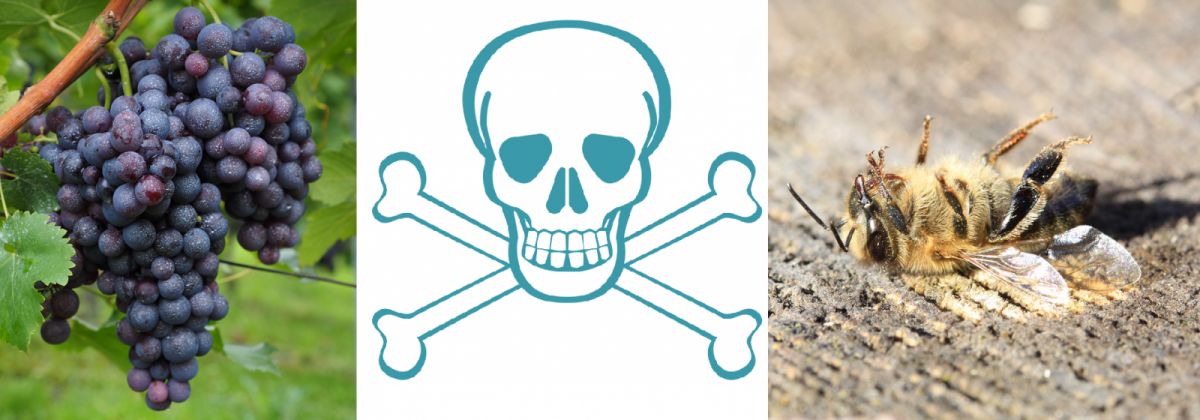Pesticides
Term (Latin pestis = plague, caedere = to kill) for chemical substances that kill, expel or inhibit the germination, growth or reproduction of troublesome or harmful animal and plant organisms. In the field of plant protection, this includes pesticides and in the field of pest control, biocides. In the narrower sense, pesticides are agents used to control animal pests, whereby the term was primarily used in this sense in English-speaking countries (pests). In some cases, pesticides are equated with insecticides. In a broader sense, however, pesticides are all plant protection products and pest control agents. According to EU regulations, there is a definition of "pesticide" that includes both plant protection products and biocidal products. However, the term "pesticide" is rarely used in the legal provisions of German-speaking countries. The picture on the left shows a vine treated with conventional plant protection (chemical sprays).

Difference between pesticides and biocides
What is the difference between the term biocide (bios = life, caedere = to kill) and biocide? In the narrower sense, biocides are active substances, chemicals and microorganisms used in pest control in the non-agricultural sector against harmful organisms (such as rats, insects, fungi, microbes), i.e. disinfectants, rat poisons or wood preservatives. Products used in the cultivation of plants, on the other hand, are not referred to as biocides, but as plant protection products. Biocides are also referred to as non-agricultural pesticides in order to differentiate between them.
Biopesticides are non-synthetic plant protection products. Compared to chemically-synthesised pesticides, they are characterised by lower toxicity, higher selectivity and better compatibility with biological or integrated plant protection. One such biopesticide was developed to combat bee mortality and consists of the venom of a tarantula and the toxic...
Voices of our members

In the past, you needed a wealth of encyclopaedias and specialist literature to keep up to date in your vinophile professional life. Today, Wine lexicon from wein.plus is one of my best helpers and can rightly be called the "bible of wine knowledge".
Prof. Dr. Walter Kutscher
Lehrgangsleiter Sommelierausbildung WIFI-Wien